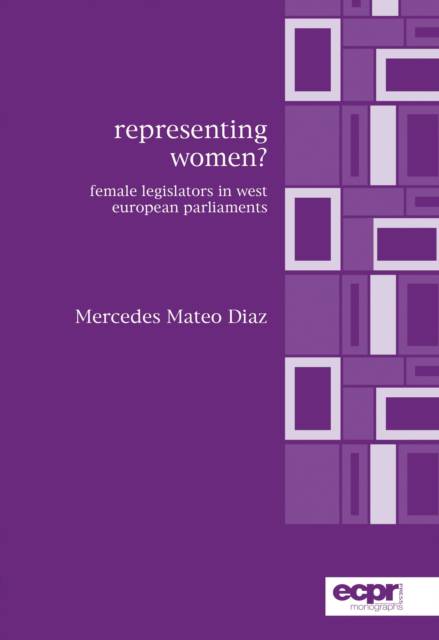
- Afhalen na 1 uur in een winkel met voorraad
- Gratis thuislevering in België vanaf € 30
- Ruim aanbod met 7 miljoen producten
- Afhalen na 1 uur in een winkel met voorraad
- Gratis thuislevering in België vanaf € 30
- Ruim aanbod met 7 miljoen producten
Zoeken
€ 61,45
+ 122 punten
Omschrijving
This work discusses questions on political participation, representation and legitimacy in the European Union national parliaments. Three major empirical questions structure the book: What affects women's presence in parliaments?, Does the number of women in parliament have an effect? And are women in parliament representing women? Empirical evidences show that institutional reforms need a 'minimal environment' in terms of socio-economic development so as to prove effective. As opposed to the critical mass theory, claiming that a few representatives cannot have an impact on the political outcomes, here the empirical evidences suggest that smaller groups can also influence the different components of the legislative process. The last part turns to the fundamental question of whether a parliament that is descriptively representative, i.e. in which the parliamentarians share certain characteristics with the voters, also is a substantively descriptive parliament, i.e. in which the parliamentarians mirror the voters' opinions.
Specificaties
Betrokkenen
- Auteur(s):
- Uitgeverij:
Inhoud
- Aantal bladzijden:
- 292
- Taal:
- Engels
- Reeks:
Eigenschappen
- Productcode (EAN):
- 9780954796648
- Verschijningsdatum:
- 1/04/2005
- Uitvoering:
- Paperback
- Formaat:
- Trade paperback (VS)
- Afmetingen:
- 159 mm x 233 mm
- Gewicht:
- 444 g

Alleen bij Standaard Boekhandel
+ 122 punten op je klantenkaart van Standaard Boekhandel
Beoordelingen
We publiceren alleen reviews die voldoen aan de voorwaarden voor reviews. Bekijk onze voorwaarden voor reviews.











